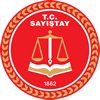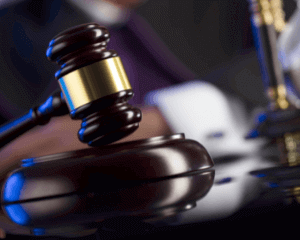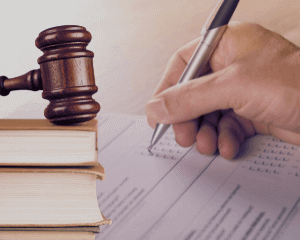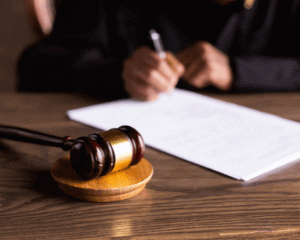The judgments and decisions are recorded in the minutes with their justifications and signed by the Chairperson of the Chamber and the Members in the committee. Decisions are announced by the writs prepared by the Rapporteurs in the TCA Chambers. These writs are notified to the responsible persons, the public administrations to which the responsible persons are affiliated, the Ministry of Finance for the public administrations within the scope of the general budget, the relevant accounting unit, and the Office of the Chief Prosecutor.
Writs, which are prepared with justifications, according to the minutes include the following:
- Chamber and decision number, name of the relevant public administration or account, and audit period,
- Names and surnames of the auditor who prepared the report, the prosecutor, and the rapporteur who wrote the writ,
- Names and surnames, titles and addresses of those responsible, and if any, their proxies or representatives,
- A summary of the issues that the auditor included in the report and their legal basis, the opinion of the prosecutor, the result of the request, and the summary of the defenses of those responsible,
- Whether the hearing is held or not, and if so, the names and surnames of those present,
- The legal basis and justification of the decision, the amount of compensation in cases where compensation is decided, the starting date of the interest to be applied, and the list of the receivers of the payment amounts,
- Issues that have been cleared by collection, their receivers, and collection amounts,
- If it is decided that the amounts collected upon inquiry are unduly collected, the date and number of the documents related to the collection, the names and surnames of the responsible and the receivers, and the reason for the return,
- Matters that are deemed ineligible,
- Date of the decision and whether its unanimous or majority vote, and dissenting opinion, if any,
- Names, surnames and signatures of the chairperson and members of the chamber performing the account trial.
If the decisions taken by the TCA Chambers are ambiguous, each party may request their clarification, or they may request the correction of the names, surnames, titles of the parties, inaccuracies related to the outcome of the claims, and the calculation errors in the decision paragraph with a petition. The Chamber that takes the decision examines the matter and, if it deems necessary, notifies the other party with a copy of the petition to be answered within the time it will determine. The decision of the relevant Chamber on this matter is notified to the parties. Clarification or correction may be requested until the execution of the decision.
Writs, which are prepared after the decisions are taken by the TCA Chambers, become final with the decision of the TCA’s Board of Appeals if an appeal is made by relevant persons. If an appeal is not made or an application is not made within the time limit, the writ becomes final after the appeal period expires.
Writs, which are finalized with the end of the appeal period, must be fulfilled within 90 days. This obligation belongs to the senior manager of the public administration to which the writ is sent. During the fulfillment of this obligation, legal interest is charged for the compensation amounts from the date of the chamber decision (judgment).











